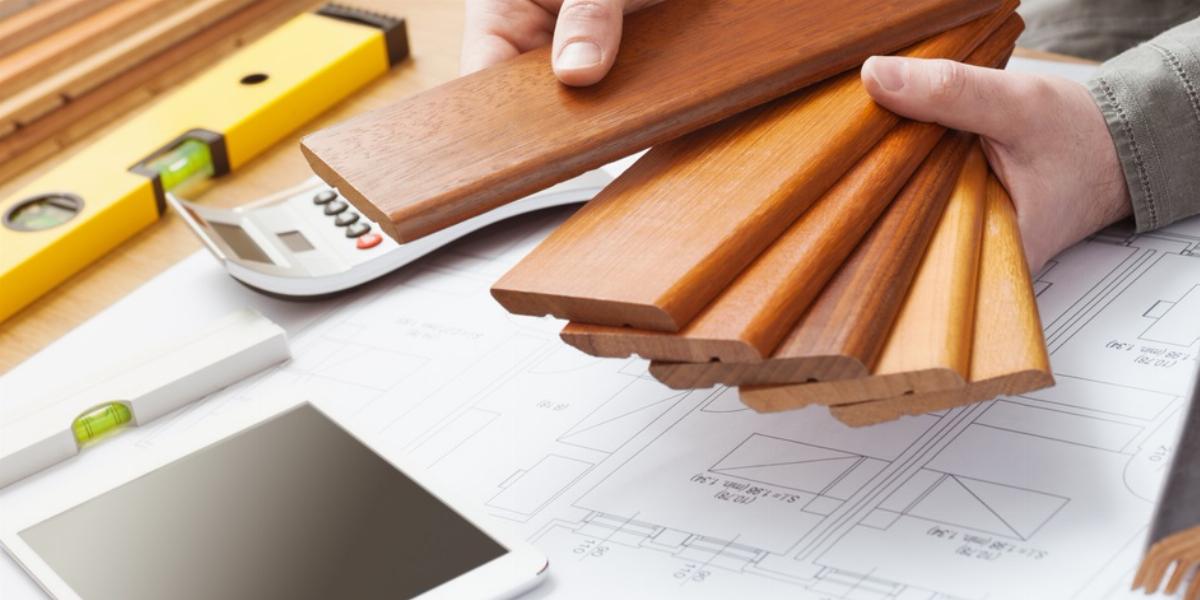
Planning a home remodel can be stressful. From picking the project to selecting the finishing touches, there are plenty of pitfalls along the way.
It always helps to be prepared, and that’s especially true when you’re tearing down walls to expand the master bathroom or creating the open-concept main floor of your dreams. Here’s how to avoid the most common mistakes homeowners make during a renovation, all while hiking up your home’s value.
Before you research contractors and remodeling companies, have a detailed plan for what you want your room to look like when it’s completed. Once you start a project, changing your mind about the design can be costly. Detailing out your vision will also provide your contractor or remodeling company with the full scope of the work. The more you decide upfront, the more accurate your estimate will be.
It’s tough to hit the brakes when you’re excited about an upcoming project, like creating an open floor plan or updating your master suite, but you’ll probably regret it if you don’t take your time. Rome wasn’t built in a day, and your newly improved living space won’t be either. The design process takes time and that includes taking precise measurements and considering the overall functionality of the space. Avoid plunging in right away to make sure everything is right the first time around.
Before you make a final decision on who to hire for your project, Steve Wheeler from Remodelers Advantage Inc. recommends that you consider factors other than price. Going through a remodel is “an incredibly difficult situation to live through, and it’s extremely important to pick a contractor that can not only perform the contracted work, but [has] the project management and customer service skills that will alleviate the impact a large renovation can have on your life.”
It's also a best practice to get at least three quotes from similar companies to get a true apples-to-apples price comparison. A home remodeling mistake can take many forms, but most can be avoided during initial consultations. Make a note of the following during your selection process:
While it’s essential to create and stick to a budget for your project, it’s equally important to set a realistic one. Home Advisor offers True Cost Guides that give you the typical range for your project. For example, the average kitchen remodel can fall anywhere between $12,556 to $33,311. Lowballing the budget can lead to using low-quality materials that will damage the end result. Instead, assume you’ll fall somewhere around the average for the size and scope of your project.
This may mean tempering your own expectations to strike a balance between your vision and your budget.
“I think that homeowners can have an imbalance of priorities and focus when it comes to remodeling their home. If all they are concerned about is cost, then they will soon find themselves with an inferior project, due to cheap materials and cheap installation. If all they care about is design and elegance, then they will find themselves with a bloated budget and a remodel that far exceeds the value of the home. Putting too much weight on one portion of the project will take away from other very important pieces that create a successful remodel.”
Steve Wheeler | Remodelers Advantage Inc.
New kitchen trends hit Pinterest every year, but focusing your remodel solely on what’s popular now can come back to haunt you in a few years. Professionals advise sticking with something timeless and adding in trendy accents or hardware to give you the best of both worlds.
Measurement mistakes can derail any renovation, particularly when it comes to kitchen cabinets, countertops or anything custom-built. Depending on the project, missing the mark by even the smallest amount can cause a delay of up to six weeks.
“Always follow the famous carpentry moniker, ‘Measure twice, cut once.’ Always double check your measurements, and if it’s complicated or will be a large amount of material that you cannot return, I would highly suggest having a professional take the measurement.”
Steve Wheeler | Remodelers Advantage Inc.
While you may love butcher block countertops and hardwood floors, it’s important to keep in mind which materials are most practical for your family. If you have children or pets, hardwood floors will show more wear and tear than laminate options – especially if you favor darker colors. Consider the durability of each material you select for your kitchen remodel, not just the aesthetics.
Pro Tip: Keep color choices in mind when it comes to design. Darker-stained floors will show scratches and imperfections more than a lighter or natural colored option.
Updating a bathroom, especially if you have a limited number in your house, can seem like a job you should handle quickly. But re-examining the layout is an important step to make the most of a renovation. If you need more space in the bathroom, consider moving the vanity to a different wall or converting to an open shower instead of relying on different colors or tile patterns to make the space feel bigger.
Homeowners often choose to skip adding a membrane system to their bathrooms. This layer goes underneath the floor tile to prevent cracks and keep water from seeping into the subfloor. It’s an additional cost, but sometimes the items you can’t see make the biggest impact.
When you are remodeling your home, remember the more you know, the less room for error there will be. Knowing what not to do can help you make the most of your time and money, while ensuring your project won’t require a do-over in a couple of months.
Looking for project ideas? Check out this guide for inspiring home remodeling ideas.
